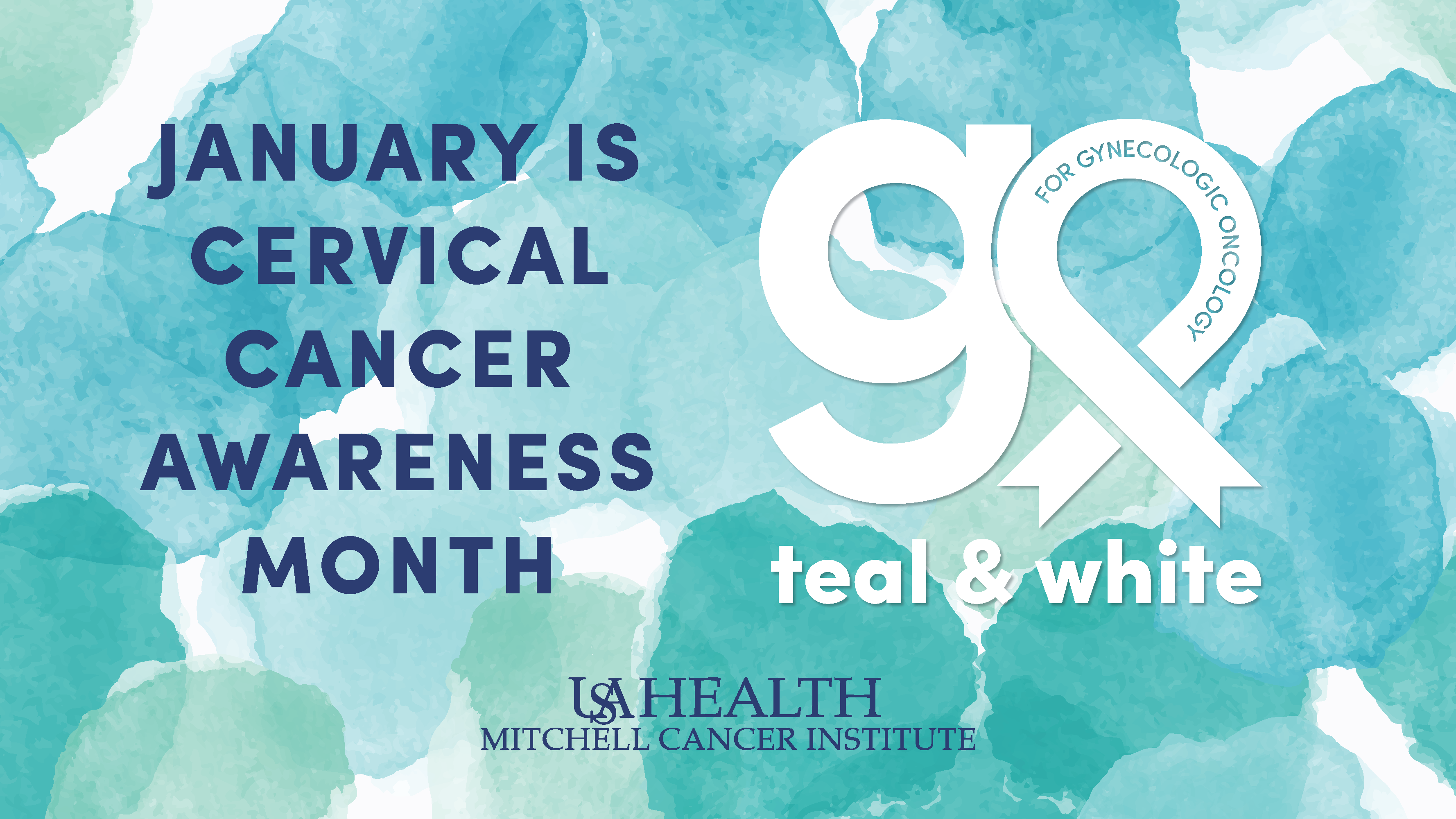GO Teal and White campaign to raise awareness about cervical cancer
USA Health Mitchell Cancer Institute is urging women in Alabama to continue their regular screenings for cervical cancer.
By Carol McPhail
[email protected]

At a time when it’s tempting to postpone checkups, USA Health Mitchell Cancer Institute is urging women in Alabama to continue their regular screenings for cervical cancer.
The message is part of this year’s statewide “GO Teal and White” campaign to raise awareness about how to prevent cervical cancer, which kills more women in the Deep South than in any other region in the nation. The campaign is joined by several other organizations from across Alabama and will run throughout January, Cervical Cancer Awareness Month.
“The goal is to get the word out that, even during the COVID-19 pandemic, it’s important to prevent cervical cancer and save lives through vaccination, pap tests and follow-up testing,” said Jennifer Young Pierce, M.D., lead of Cancer Control and Prevention and a professor of interdisciplinary clinical oncology at the Mitchell Cancer Institute.
The campaign calls on businesses, nonprofit organizations and supporters to hang GO Teal and White posters during the month of January and to wear teal and white on Wednesday, Jan. 13. The RSA Tower in Mobile will be lit in teal and white to commemorate the day.
According to the Centers for Disease Control, Alabama, Mississippi and Arkansas tied for the worst death rates from cervical cancer in the nation over the five-year period from 2013-17.
Joining the Mitchell Cancer Institute for the GO Teal and White campaign are the American Cancer Society, the University of Alabama at Birmingham, Lilies of the Valley, Alabama Public Health, the Alabama Comprehensive Cancer Control Coalition, the Laura Crandall Brown Foundation, Human Rights Watch and the Alabama Chapter of the American Academy of Pediatrics.
The Mitchell Cancer Institute offers the following recommendations to prevent cervical cancer:
- Get screened. A Pap test is recommended every three to five years for women ages 21 to 64. An HPV (human papillomavirus) test is recommended starting at age 30.
- Follow up with your physician on any abnormal screening results.
- Vaccinate adolescent boys and girls, ideally between the ages of 11 and 12, against HPV, which causes cervical cancer.




